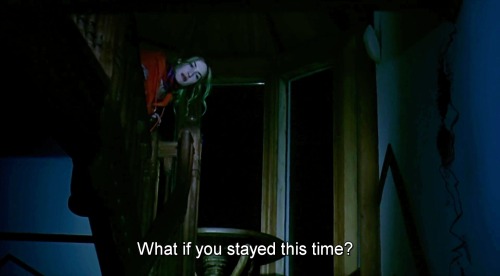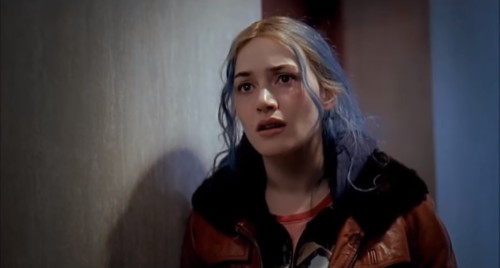Exploring the Great Empathy Machine – Cinema’s Most Romantic Moments Part 1
It takes only half a glance at my Letterboxd profile’s “favourite films” list to tap into the fact that romance is one of my favourite themes in cinema. It seems, to me at least, like there is no artistic medium on the planet that can so often and so succinctly present the ideas and/or actualities of romance quite like film can. Over the years, I’ve seen great works of photography that capture romance, or the absence of it, in a way that has profoundly moved me, and I have read great works of literature that perhaps hold an altogether more timeless quality, but never have I had access to an art form that so often presents great works of romantic art quite like film does. Cinema is, of course, working from the advantage of being able to accurately present how we as an audience should feel at any given time through the work of actors we experience much more up close than in any other art form, and film does work in conjunction with the other art forms – literature, music, painting, etc. – to highlight these desired reactions and in many cases provoke them. In film, unlike in any other medium, romance is made to be experienced through the eyes and the ears via creative choices in writing, the visual arts, and a musical score, and while this may make the idea of cinematic romance seem more constructed and therefore perhaps less interpretive than a great painting, it is through romance on a silver screen that most people are gifted their ideas of love, or have their pre-existing ideals reaffirmed.
Everyone has a favourite big screen love story, but for me romance is best illustrated in the cinematic form through stories that present the romantic as a divine act that the universe wishes to happen; movies in which the protagonists are encouraged to experience one another through every encounter and story development; movies where the fantasy of romance is precisely that: fantasy. Great examples of this are the likes of Before Sunrise, in which the city of Vienna acts as a haven of escape from reality for two protagonists who are longing for a connection that only their absence from responsibility can create, or; Call Me By Your Name in which every kind act from a stranger, every piece of advice from a mentor figure, every sunny day and every economic privilege comes together to create a fantasy space in which the two central characters cannot help but to fall in love. Then, in the case of these two movies and in the case of many more I have come to adore and will explore in future iterations of this blog series, the fantasy must end and reality set back in. Unlike the happily ever afters of The Notebook and When Harry Met Sally, I prefer reality as a bitter aftertaste; love and romance presented as fleeting, life-defining moments. That is to say, usually.
In this piece, the third of my blog series Exploring the Great Empathy Machine, I shall begin my journey through silver screen romance with Eternal Sunshine of the Spotless Mind (2004) to present to you Cinema’s Most Romantic Moments as chosen by me.
Eternal Sunshine of the Spotless Mind – “What if you stayed this time?“
I always felt, even as a teenager, like Eternal Sunshine of the Spotless Mind was a film written just for me, such are its great levels of intimacy and personality, even within its sci-fi concept. Written by the incomparable Charlie Kaufman, Eternal Sunshine deals with the idea of fantasy romance almost literally; telling a tale of love through memories that central protagonist Joel (Jim Carrey) is in the process of being deleted from his brain in order to get over a tough breakup from one-time lover Clementine (Kate Winslet), herself having already undergone the procedure.
The romantic hinge of the movie comes in Joel’s realisation that for all the pain he is going through, and for all the downsides to his past relationship, he doesn’t actually want to forget Clementine or the romance the two experienced. To ensure that at least some memory of her remains, he physically takes the memory of her (represented physically by a supportive, romantic version of her character) to deep, hidden memories in an attempt to keep her from being deleted by the doctors currently fulfilling their obligations in his apartment room while he sleeps. It doesn’t work, and Joel is forced to relive his final memory of Clementine; an uncomfortable situation in which the two break into a holiday home and Joel makes the decision to leave.
Joel [echoing the anxieties of the real situation he remembers]: We should go.
Clementine: So go.
Joel [internally]: I did. I thought that maybe you were a nut, but you were exciting.
Clementine: I wish that you’d stayed.
Joel: I wish I’d stayed too. Now I wish I’d stayed. I wish I’d done a lot of things. I wish I… I wish I’d stayed. I do.
Clementine: Well I came back downstairs and you were gone.
Joel: I walked out. I walked out the door.
Clementine: Why?
Joel: I don’t know. I felt like a scared little kid; I was like… in above my head, I don’t know.
Clementine: You were scared?
Joel: Yeah. I thought you knew that about me? I ran back to the bonfire trying to outrun my humiliation.
Clementine: Was it something I said?
Joel: Yeah. You said “so go” with such disdain, you know?
Clementine: Aw, I’m sorry.
Joel: It’s okay.
Joel Leaves.
Clementine: Joelly? What if you stayed this time?
Joel: I walked out the door. There’s no memory left.
Clementine: Come back and make up a goodbye at least? Let’s pretend like we had one?
Joel is met at the door of the crumbling house by Clementine.
Clementine: Bye Joel.
Joel: I love you.
Clementine: Meet me in Montauk.
This moment acts as the reveal of the movie’s central plot line: that Joel and Clementine met again after the completed procedure, in Montauk, and fell in love all over again, indicating that the subconscious minds of the two characters were connected in a way more profound than the conscious memories they’d come to lose to eternity. As such, it holds a lot of weight for fans of the film. My appreciation comes elsewhere in this scene however; it comes in their exchange of dialogue and specifically, “what if you stayed this time?”
In one line, the narrative arc of Joel’s journey is completed as he finally acknowledges that Clementine truly did love him, and thus he comes to terms with his biggest insecurity regarding his relationship to her: that she never did. His version of Clementine asked him to stay in a situation he was originally almost goaded into leaving, illustrating his acceptance that she never meant it in that way or that, even if she did, it didn’t mean that she loved him any less. Joel gets his closure in the last moment of time he has with her in his own mind, illustrating his acceptance to her disappearance from his life; an absence anyone watching the movie can identify with should they have had a relationship (romantic or otherwise) which has suddenly ceased to exist.
In the moment, this small line in the midst of a bigger scene made to reveal the plot at the heart of the movie, is absolutely life affirming – it sends the message that pain can be worth it; that moving on can be achieved; that love isn’t necessarily forever. Then, somewhat spectacularly, this brief but important moment is transformed yet again in the closing moments of the movie when the post-op versions of their characters are confronted with the fact they have previously deleted one another from their memories and come to terms with the likely temporary nature of their budding romance, thus deciding to leave things before they go sour.
In an almost mirror image of their previous romance’s encounter, Clementine takes the role of person running away from a situation because they’re scared. And, despite no longer holding any knowledge of the closure he gained in the final moments of his memories with her, in which she told him to stay, he ensures she doesn’t make the same mistake he did; he asks her to “just wait”. Her reaction speaks volumes:
In this moment, Clementine is given the reassurance her character has been sorely missing and as such her own arc comes to a conclusion, and therefore even as she fights Joel with the “buts” and “maybes” of how their relationship will ultimately fail, she’s given the closure of Joel’s resistant and accepting “okay”, a single word that confirms to her that there’s no level to which she can mess this up without it all being worth it to him as it surely will be to her.
Their small, brief, and entirely made up goodbye that existed solely within a memory that no longer exists, played out like the test run for a relationship-defining moment that in reality was never going to be messed up a second time, gifting Joel and Clementine the opportunity to succeed in their second go around; to overcome their insecurities and confrontations to succeed in love where they have previously so emphatically failed.
To me, there are very few moments in cinema that rival this in terms of how I believe love to be, exist, and be worked for, and as such it holds a firm grip on a place in my mind that is altogether more soppy and romantic than I ever openly give myself credit for or reveal to other people. “So what if you stayed this time” from Eternal Sunshine of the Spotless Mind is therefore an undeniable choice for my first entry in this miniseries of my favourite romantic movie moments, and possibly my favourite moment of love in any film ever.
If you’d like to contribute to the direction of this blog series or have comments of your own regarding Eternal Sunshine of the Spotless Mind, the moment I’ve covered or anything to do with this blog, please leave a comment below this article and I’ll be sure to read and respond as soon as possible. In the meantime, bookmark The Film Magazine on your web browser, save us as an app icon on your phone (by clicking “add to home screen” in your browser), follow me on Twitter @JoeTFM and have fun exploring the Great Empathy Machine!
[DISPLAY_ULTIMATE_SOCIAL_ICONS]



